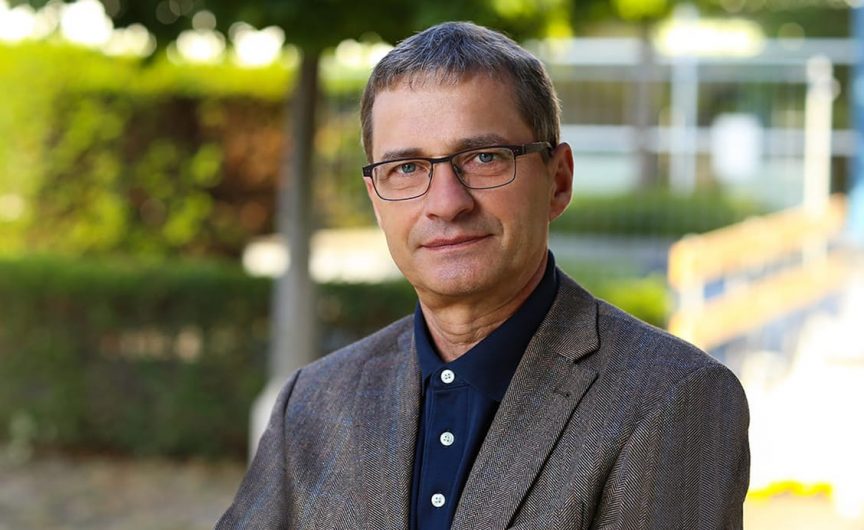High up in the north, Andreas Böbe is responsible for customer support. He has been with DOMO for 24 years. He started out in sales, moved into agricultural consultation, and nowadays is available for individual questions about the nutrient supply of your crops and soils. So we have asked Andreas 7 questions.
What links you to agriculture?
As a city boy, I went into agriculture – to be precise, into livestock farming. After a technical course of study, I worked in a technical and agrochemical section of agriculture. With the turn, I went into grain and seed treatment technology and I finally arrived in plant nutrition. If you look at the current discussions in the community about nutrition, the circle has closed for me.
Where do the particulars lie in north/north-east Germany?
There, the people with their mentality, origin and age are characterised by the diverse operational concepts, course of education and the various business developments in east and west. Even the weather is characteristic with rich and sufficient precipitation on the coast, in the east there is too little precipitation. That coupled with the most diverse soil types, climate conditions, crop types and cultivation systems.
What do you like most about your job?
At DOMOGRAN® I have a product that has a lot of potential in application. The individuality in consultation supports and develops me. Fertiliser, soil science, climate, plant nutrition and many crop types are a constant challenge.
What do you place particular value on?
In consultation, I place particular value on the connection of plant and soil. Interface is the root. View it in a similar way to house construction: Large houses need large foundations and in the agricultural consultation, it is very similar: Large roots bring about the best yields. Production security increases with the root size. Plant nutrition in correlation to the soil can render a lot at this point.
What is currently changing in agriculture?
Corporation and agriculture are probably standing at a crossroad. There the corporate dispute about the orientation of agriculture has an open outcome. The current fertiliser ordinance presents increasing requirements for the application of fertiliser with clear effects on the business economics. It is exacerbated by the in part dramatic climate changes. Heat and dry phases, and heavy rain necessitation very fertile soils for the protection of the production results and business requirements.
Fertiliser ordinance – what must farmers adapt to?
Nitrogen and phosphorous have been further restricted in the demand values and the output deadlines. For the protection of positive business results, it is now about the nitrogen and fertiliser efficacy. With DOMOGRAN® we are at the forefront. Consultation is becoming more complex and profound.
What do you hope for with the new DOMOGRAN website and the blog?
With the website, we are creating a new information portal for new information about fertilisation. Both those interested and users of DOMOGRAN® can inform themselves – on their computer or comfortably on their mobile. If that is not enough, there is also the option to contact us directly. The need for knowledge increases with the demands on the farmers.
We would like to thank you for the interview!



